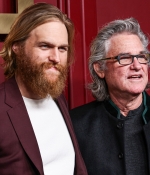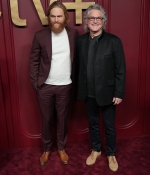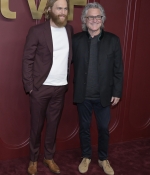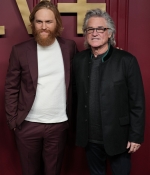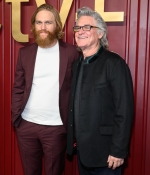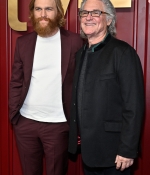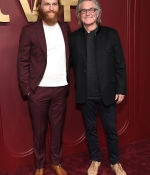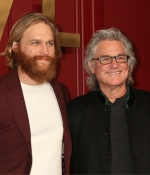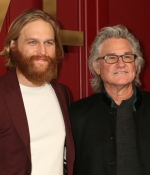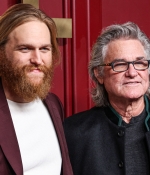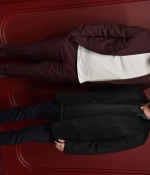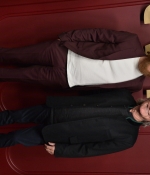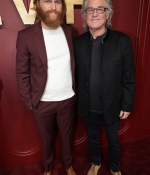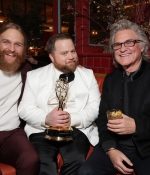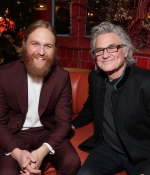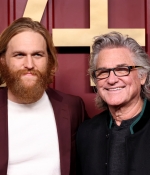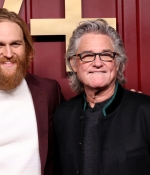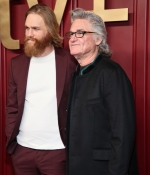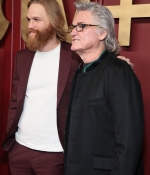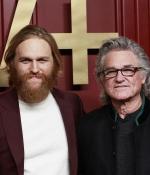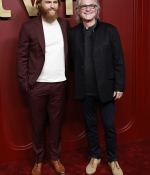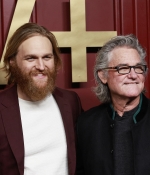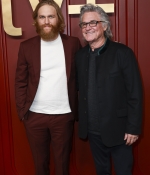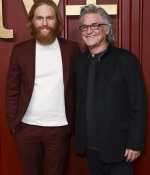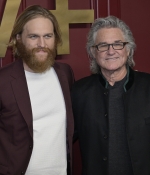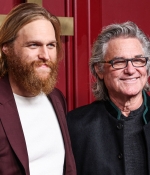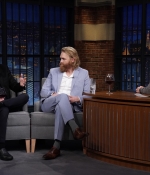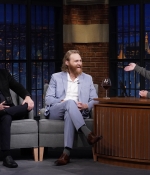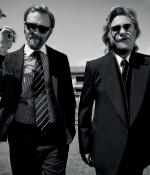
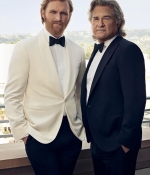
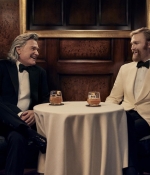
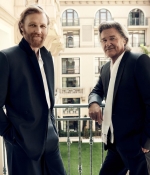
It is a blessing and a curse to trade within the shadow of one’s father. The desire to learn and imitate is as potent as the desire to chart one’s own course and make a success of life in an independent manner. It is worth saying, too, that an intrinsic element of the human condition seems to be our inability to rid ourselves of interest in family legacies, from the fictional, like the Roys in Succession, to the real-life dynasties of the Windsors, the Kennedys, the Coppolas and, in this instance, the Russells.
Kurt Russell and Goldie Hawn are the golden couple of Hollywood, and their actor son, Wyatt, has been attracting the kind of notices his father enjoyed at a similar age. The Rake has always loved stories that reveal the potential a father can inspire in his son’s life, through character, principles and values. That theme illumnates the conversation here between Kurt, 72, and 37-year-old Wyatt. The prospect of Wyatt emulating his father’s acting career was never a fait accompli, but unpredictability is life’s prerogative. What we know for certain is that Kurt and Wyatt’s dynamic is, and has always been, one of support, care and love.
Both of you grew up with fathers as actors but in different generations. What were the distinctions as well as the similarities in having fathers in the industry?
Kurt: The first time I went on set of a film, my dad was working on a western. Obviously the gun was the coolest thing there, and I got a wooden gun from the prop guy. Fairly shortly after that I saw these guys having a blast and thought, If they are having fun doing this and they are getting paid to do it, I’m over here — I can do that.
Wyatt: So you felt you wanted to be an actor from when you went on set, and that made you want to act?
Kurt: No, I wanted the money, I wanted those things.
Wyatt: Our relationships with our fathers are very different. I had access in a different way that you did, and I looked at it through a different lens. What I took away from being on set with you wasn’t so much, This is so much fun, and this is so great and you make money, I took away that you have to work really hard to make it work, and it was very stressful. I remember coming home with you after the day was over, and you put me to sleep on that — it was like a Days Inn, you put me to sleep on the fold-out couch and you went and sat at this round table in the kitchen and would write and smoke till late in the morning, then go to bed. This is something I have now done in my own way, but it was nice to see.
Kurt: There are so many stories. I remember when you were a little boy, we were doing a scene where we were getting electrified. You were looking around, like, ‘Woah, what is happening?’, and you were taken out. Our lives were similar in this regard: your father and you, and my father and me, were never concentrating on the acting world, we were concentrating on our other worlds, which in the case of me and my father was baseball, and you and your father was ice hockey.
Wyatt: By far and away the similarities in acting ability of anybody in our families came from sports. The core reality of who you are and what you bring to a movie was shaped long before anyone ever stepped foot on a movie set.
Kurt: Don’t you think [our experience with sports] was a little like learning about the world in a gladiatorial sense? I mean, it was cut and dry: you either survived or you failed. There is no competition in our [acting] industry, it is collaboration. It’s not 20,000 people screaming at you to succeed, where if you fail you know about it immediately. You learn about life that way.
Wyatt: We never talked about acting. With big Pa, Bing [Russell], sports was way more endlessly fascinating to talk about, because you talk about things that haven’t happened, and you don’t know the outcome.
Kurt: The circus at home was always greater than the circus at work. [More at Source]
